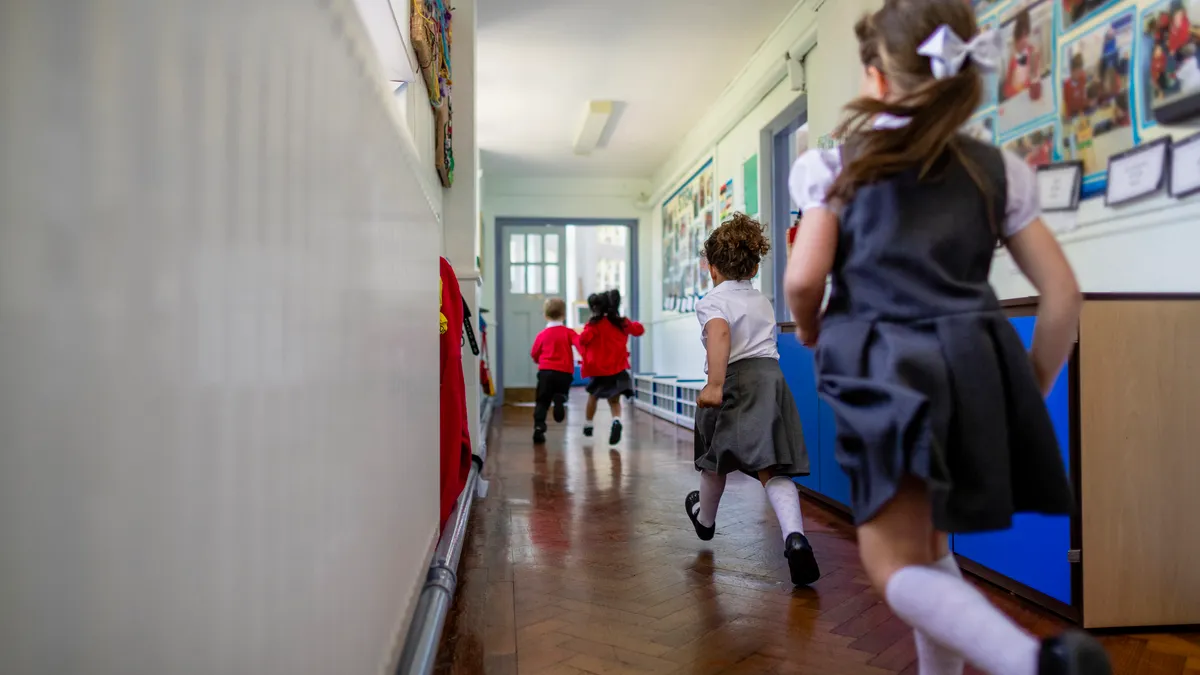Dive Brief:
- More than 1 in 4 public charter schools shutter within five years, and the longer a charter operates, the higher its failure rate, according to a longitudinal study released Monday by the National Center for Charter School Accountability and Network for Public Education.
- The study, which gathered data from more than 2 million U.S. Department of Education records, found that by year 20, the average failure rate is 55%.
- Nearly half of charters that closed between the 2022-23 and 2023-24 school years did so due to low enrollment, with the second most common reason being fraud or mismanagement, the study concluded based on a nationally representative analysis of news stories.
Dive Insight:
Charter schools have gained steam over the years, particularly among parents who viewed them as an attractive alternative to traditional public schools during the pandemic.
Studies suggest their growth continued even after school buildings reopened after COVID-19 closures. Charter school enrollment rose 9% between the 2019-20 and the 2022-23 school years, while public school enrollment dropped by 3.5%, according to a 2023 analysis from the National Alliance for Public Charter Schools, a charter school advocacy group.
Moody's Investors Service, a nonpartisan financial services company that provides insight on financial trends in education and other sectors, came to a similar conclusion. Its report released last year found charter school enrollment continued to grow following the pandemic and said charter and virtual school enrollment had exacerbated traditional public school enrollment losses.
Indeed, competition for students was found to be on the rise among traditional public schools, charter schools, private schools and homeschooling within the nation's 125 largest school districts, according to a 2023 study by Thomas B. Fordham Institute, an education reform think tank.
Charter popularity continues despite a controversial reception from some lawmakers and public school advocates, who say that charters are not held as accountable as traditional public schools.
Lawmakers remained divided over the subject In a House hearing earlier this year, when congressional leaders debated the effectiveness and direction of the charter school movement.
On one side, lawmakers pushed to bolster charter school support. On the other, some argued for increased oversight of existing charter schools while doubling down on support for traditional public schools. A large point of contention arose over whether charter schools receive enough oversight given their high closure rates.
In 2022, the federal Government Accountability Office found that charter schools that get federal funding were about 1.5 times less likely to close than ones that didn't receive an award through the Education Department's Charter Schools Program between fiscal years 2006 and 2020.
However, the report also found that states had awarded 8% of their federal funding grants to schools that closed or never opened. About 14% of charter schools receiving funding through CSP state awards — the largest grant program — closed or never opened.
The report released this week "assumes that school closures are a bad thing," contended Starlee Coleman, president and CEO for the National Alliance for Public Charter Schools,, in an email to K-12 Dive. "A school closure is a disruption to students, but not as much of a disruption to the futures of those students when they can’t read or do basic math."
The difference between traditional public schools and charter schools, Coleman said, is that "the charter sector will act when a school is failing," by closing it down.








 Dive Awards
Dive Awards






